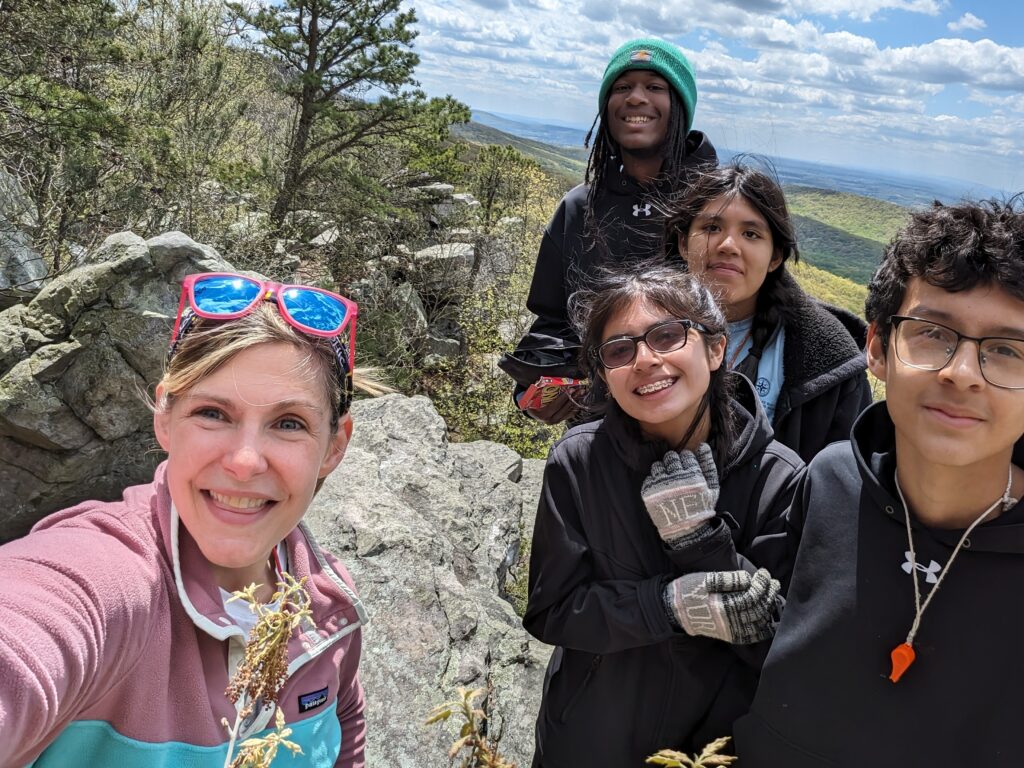
Editor’s Note: This is the second of two stories about Allegheny graduate Sabina Sully and the global lessons she is bringing to her students.
When students in Sabina Sully’s middle-school class in Baltimore learn about the awe-inspiring landscapes and the environmental challenges confronting South America’s Patagonia wilderness, they do so not just from textbooks and the Internet, but through the firsthand experience of their teacher.
From riding in Zodiac boats through 50 mile-an-hour winds to mingling with southern elephant seals and penguins to watching towering glaciers as they calved, Sully’s time in Patagonia, which traverses parts of Argentina and Chile, was impactful in many ways.
“The first takeaway was the intense interconnection of the Earth and its systems. Nothing operates in isolation,” says Sully, a 2005 Allegheny graduate. “So often, we feel like we exist in a bubble, but our actions—both positive and negative—have far-reaching consequences. Even in a place as remote as Patagonia, human impact is evident, from plastics washing ashore on remote landscapes to the devastating effects of invasive species, not to mention glaciers receding at an alarming rate.
“The second takeaway is the power of storytelling and connection. One of the goals of the program is for us, as fellows, to return home prepared to share the story of the places we visited and use our experiences to inspire change. However, I found that I was also sharing my own story while on the ship. Guests were incredibly curious about the teachers on board, and I was frequently asked about my work.”
Those guests often had preconceived notions about Sully’s work at Patterson Park Public Charter School in east Baltimore, she recalls. “Middle schoolers, while on a bit of a hormonal roller coaster, are at a pivotal moment in their lives—figuring out who they want to be in the world, fiercely passionate about their beliefs, and absolutely hilarious. You never know what will happen next when you work with middle schoolers,” Sully says.
Returning home, Sully reflected on what an impactful experience it was in Patagonia, what it meant to have enjoyed that privilege, and how to share it with her students in a meaningful way. Ultimately, it led to the creation of a yearlong course focused on climate and conservation science, underrepresented narratives in polar exploration, and local advocacy, says Sully. The goal is to help students draw strong connections between the climate crisis and their own community while equipping them with the tools to become storytellers and advocates for change, she adds.
The program will culminate in a student expedition to Antarctica with National Geographic-Lindblad Expeditions aboard the same vessel that Sully sailed on in Patagonia. Students will be working alongside a Baltimore based production company to create a short documentary, which will premiere at the Maryland Zoo’s Party for the Planet.
“This program is just so special to me—it blends classroom instruction with hands-on partnerships at the National Aquarium and the Maryland Zoo, and then we get to take students to Antarctica,” says Sully. “Honestly, I still can’t totally believe it. It’s not just about the experiences students gain, but also about the stories they bring back to inspire future generations. Seeing our community come together to make this a reality is such a testament to the power of collaboration and the belief that young people can drive real change.”


